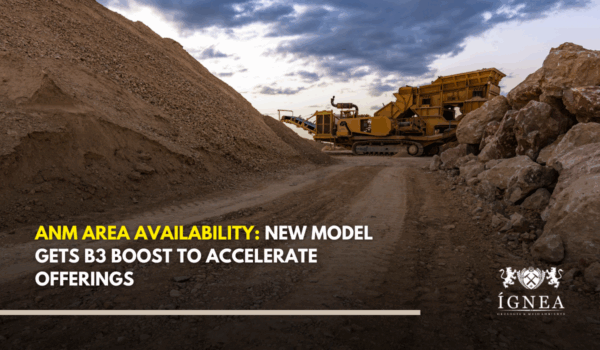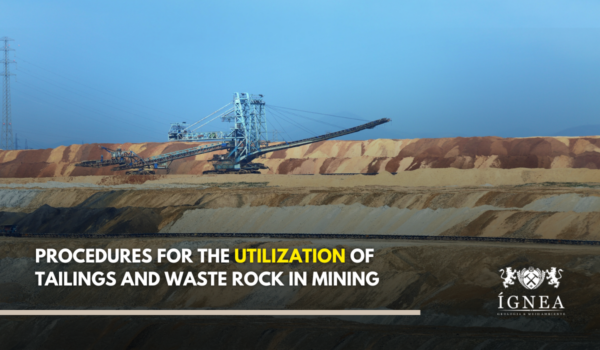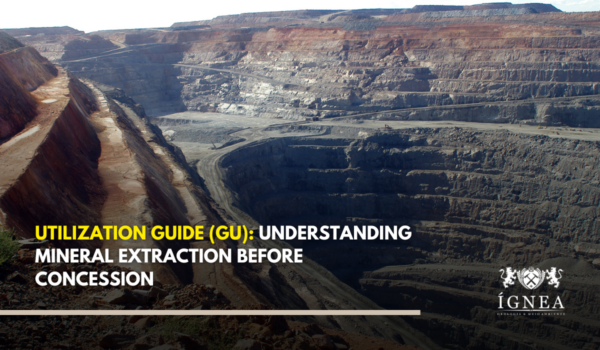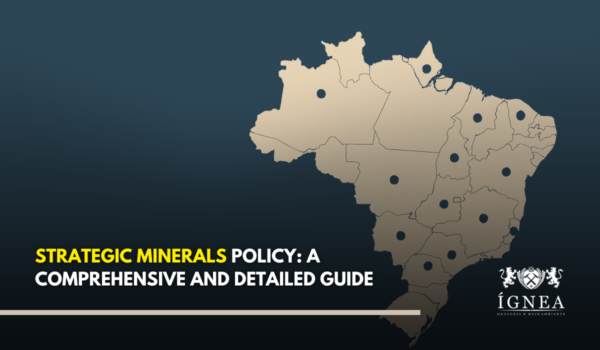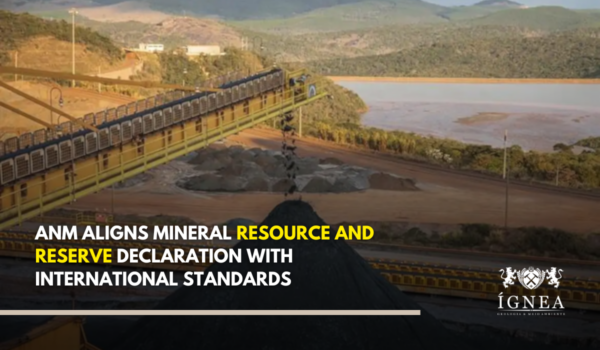The lease of mining rights is a common and complex strategy that allows a holder of mining rights to grant a third party the right to explore a specific area without transferring ownership of those rights. This practice is meticulously regulated in Brazil, aiming to ensure the rational use of natural resources and compliance with environmental and social obligations.
The Normative Consolidation of the National Mining Agency (ANM), established by Ordinance 155/2016, outlines the procedures, requirements and responsibilities inherent in the lease of mining rights, a topic of relevance to all those involved in the mining industry.
Permitted Contracts: Total and Partial Lease
The legislation is clear in delimiting the types of lease contracts that are permitted. Only mining concessions and manifestos of mines can be the object of a lease, whether total or partial. This means that if you hold a research authorization or registration of license, for example, you may not lease these rights.
What Does Not Qualify as a Lease
It is important to note that the Normative Consolidation is specific in stating that the outsourcing of mining activities does not fall within the definition of lease. This means that contracting a company to carry out mineral extraction, per se, does not constitute a lease.
Prior Consent and Registration: Essential Steps
Prior consent from ANM, for the lease to be valid, is a fundamental step. In addition, the lease contract must be registered with the Agency, ensuring that the process is transparent and duly recorded.
Necessary Documentation: The Total Lease
When seeking the total lease of an area, the required documentation is extensive and meticulous:
- Lease contract (original or authenticated copy)
- Corporate documents of those involved, to prove the legal capacity of the parties
- Economic Use Plan (PAE) or declaration of commitment to the existing one
- Declaration of responsibility for environmental recovery
- Proof of financial availability
- Proof of payment of fees
Additional Documentation for Partial Lease
In the partial lease, in addition to the documentation required for total lease, it is necessary to present:
- Technical and economic justification for the area’s dismemberment
- Descriptive memorial and plans of the area to be leased
- Redimensioning of mineral reserves
In-Depth Lease
A specific modality is the lease in depth, where exploration is limited to a certain depth of the deposit. For this type of lease, it is necessary to inform the depth limit quotas, in addition to the documents already mentioned for the partial lease.
ANM Analysis
ANM critically analyzes the lease requests, verifying the documentation, the technical and economic viability, and compliance with environmental regulations. Consent may be denied if there are irregularities, debts, or if the lease does not serve the public interest.
Deadlines and Extensions
The legislation establishes a maximum term of 30 years for lease contracts, counted from the registration. It is possible to extend the contract, provided that the request is made before the end of the original term and that all requirements are met.
Contract Termination
The termination of the lease contract must also be communicated to ANM, so that due actions can be taken.
Responsibilities
Lessor and lessee share responsibilities over the leased area. Both must ensure the safety of the area, compliance with environmental regulations and the integrity of the mining grant. The lessee is who need to carry out the mining activities and needs a license to operate.
Mine Closure and Suspension
The closure of the mine and the suspension of activities require compliance with specific rules, and the occurrence of such events may result in a mandatory inspection by ANM.
Contract Termination
With the termination of the contract, the lessor must submit a report on the conditions of the mine and its possibilities for the future.
The lease of mining rights is a valuable but complex tool that requires a deep knowledge of the legislation and the rigorous compliance of the established procedures. The Normative Consolidation, regulated by Ordinance 155/2016, offers a detailed framework to ensure that leases are conducted in a transparent, responsible and compliant manner with applicable laws and regulations.










